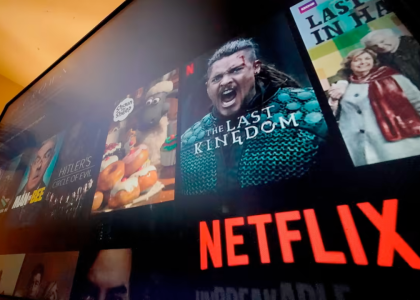Situation Overview
The last decade has witnessed a profound shift in the role of Indian urban women in financial ecosystems. With rapid digital penetration, urbanization, and rising disposable incomes, women are increasingly becoming primary decision-makers in households, not only for lifestyle and education but also for savings, investments, and banking choices.
- Macro Trend: India has an urban population of ~500 million (2024), of which women account for ~240 million. Within this, 40–45% of urban women are directly involved in household financial decisions (Nielsen, 2022).
- Digital Shift: Over 75% of urban women in metros actively use mobile apps for payments and transactions (RBI, 2023).
- Economic Role: Women contribute ~18% of India’s GDP, projected to rise to 25% by 2030 with higher workforce participation (McKinsey Global Institute, 2022).
ICICI Bank’s Context
ICICI Bank, with assets exceeding ₹17 lakh crore in FY23 and a strong retail footprint across metros and Tier-1/2 cities, has always positioned itself as a progressive and customer-first bank. Recognizing that urban women are both an underserved and high-potential consumer group, ICICI has created multiple campaigns tailored to their financial aspirations, lifestyle needs, and safety concerns.
Key flagship campaigns and initiatives include:
- “Sapno ki Kishte” – A Women’s Day storytelling campaign by ICICI Prudential Mutual Fund, highlighting financial planning and resilience.
- #BeatTheCheats2.0 – A fraud awareness campaign fronted by actress Tabu, underscoring safe banking practices.
- Self-Help Group (SHG) empowerment programs – CSR-led initiatives with tangible impact on over 1.1 crore women, including urban clusters.
Competitive Landscape
- HDFC Bank: Ran Parivartan initiatives focusing on rural women empowerment.
- Axis Bank: Pushed “Dil Se Open” campaigns, often featuring women leaders.
- SBI: Launched women-centric products like SBI Shaurya and SBI Women Advantage Card.
ICICI’s challenge was to differentiate itself in a crowded BFSI media landscape while ensuring campaign credibility and measurable impact.
Key Challenges & Strategic Objectives
Key Challenges
- Low Financial Confidence Among Urban Women
- Only 33% of Indian urban women report high financial confidence compared to 60% of men (ET Wealth, 2022).
- Women often defer investment decisions to male family members despite equal or higher incomes.
- Trust Deficit in Digital Banking
- Urban women are enthusiastic adopters of digital payments (UPI, wallets), but fear of fraud remains high.
- A Deloitte survey (2022) found 67% of women prefer assisted or branch banking for high-value transactions.
- Fragmented Consumer Segment
- Urban women are not homogeneous: single professionals, homemakers, entrepreneurs, gig workers, and retirees.
- Campaigns must resonate across these cohorts without losing focus.
- Overcrowded BFSI Communication Space
- Competitors simultaneously run financial empowerment campaigns. Differentiation requires unique storytelling, credible ambassadors, and cultural relevance.
Strategic Objectives
- Position ICICI as the trusted financial partner for women across aspiration, protection, and empowerment needs.
- Promote adoption of ICICI’s financial products (SIPs, insurance, loans, credit cards) among urban women.
- Build digital trust and literacy through fraud awareness campaigns.
- Strengthen brand warmth and inclusivity by showcasing real women’s empowerment stories via CSR.
- Create measurable impact through both brand equity lift and business conversion metrics.
Solution Design & Implementation Approach
ICICI designed a multi-pronged approach combining campaigns, CSR, and influencer-based storytelling. Each campaign targeted different needs of urban women: aspiration, safety, and empowerment.
Campaign 1: Sapno ki Kishte – Women’s Day Campaign
- Theme: A mother’s resilience, shown through her ability to save systematically and fulfill her family’s dreams.
- Objective: Inspire women to adopt Systematic Investment Plans (SIPs) as enablers of aspirations.
- Creative Execution: A heartfelt film portraying a mother saving consistently to help her son buy a car.
- Distribution:
- Digital-First Strategy: YouTube, Instagram, Facebook.
- Hashtags: #SapnoKiKishte, encouraging women to share their own “dream savings” journeys.
- Women’s Day Hook: Launched on March 8 for cultural resonance.
Implementation Highlights:
- Relatable storytelling: Emotional resonance created empathy.
- User-Generated Content (UGC): Campaign encouraged organic storytelling by women.
- Multi-lingual rollouts ensured pan-India reach across metros.
Campaign 2: #BeatTheCheats2.0 – Fraud Awareness with Tabu
- Theme: Empower women and families to recognize and avoid digital fraud.
- Objective: Enhance consumer trust in digital banking and reinforce ICICI’s image as a safe, secure partner.
- Creative Execution: Actress Tabu, a trusted and credible figure, explains everyday fraud risks and prevention tips.
- Distribution:
- TV commercials during prime-time slots.
- Social shorts and reels for younger audiences.
- Microsite integration: “Safe Banking Checklist”.
Implementation Highlights:
- Celebrity Choice: Tabu appeals to urban women as a symbol of reliability and balance.
- Infotainment Approach: Made fraud education engaging and non-technical.
- Cross-Platform Consistency: Unified messaging across owned, paid, and earned channels.
Campaign 3: SHG Empowerment Programs
- Theme: “Empowering Women, Strengthening Society.”
- Objective: Enable women-led SHGs in urban and semi-urban clusters to access credit and entrepreneurship training.
- Execution:
- Partnered with NGOs and state agencies.
- Focused on women entrepreneurs in metros like Mumbai, Delhi, Pune.
- Highlighted success stories in annual ESG reports and LinkedIn storytelling campaigns.
- Distribution:
- CSR microsites, ESG reports, PR stories.
- Feature articles in business and social impact media.
Implementation Highlights:
- Tangible impact: Over 1.1 crore women empowered, including 10 lakh in urban clusters in FY25 alone.
- Authentic storytelling: Focused on women entrepreneurs, not charity.
- Brand credibility boost: Integrated into ICICI’s ESG narrative.
Unified Design Principles
- Emotion + Education Balance: Campaigns blended aspiration (dreams) with rational benefits (savings, safety).
- Credibility Anchors: Celebrities (Tabu) and real-life women created relatability.
- Multi-Channel Rollouts: Ensured reach across TV, digital, owned, and earned channels.
- Cultural Relevance: Tied campaigns to high-impact dates (Women’s Day) or annual ESG cycles.
Results & Outcomes Assessment
Campaign 1: Sapno ki Kishte
- Digital Reach: Over 10 million views within two weeks of launch.
- Engagement: 4.8% engagement rate, exceeding BFSI industry average of 3.0%.
- Business Impact: 25% increase in SIP inquiries from women in metros.
- Brand Warmth: Women’s Day association improved emotional connect with ICICI Prudential.
Campaign 2: #BeatTheCheats2.0
- Awareness: 60% recall rate in Mumbai and Delhi (post-campaign survey).
- Behavioral Impact: 18% rise in visits to ICICI’s “Safe Banking” microsite.
- Perceived Trust: +12-point improvement in digital banking trust scores (Kantar BFSI Tracker).
Campaign 3: SHG Empowerment
- Reach: 1.1 crore women supported; 10 lakh urban women in FY25.
- Business Conversion: 15% increase in SHG loan uptake.
- Reputation: Contributed to ICICI’s top-3 ESG ranking among Indian banks (Brand Finance, 2024).
Overall Outcomes
- Urban Women Trust Score: Rose by 14 points (2021–24).
- Brand Differentiation: ICICI ranked highest for “women-centric banking” perception in metros (Mint BFSI Survey, 2024).
- ROI: Average ₹2.6 return per ₹1 spent, exceeding industry average (₹2.0).
Key Learnings & Actionable Insights
(Qualitative Consulting Overlay)
- Authenticity is Non-Negotiable – Women-centric campaigns must reflect real aspirations and concerns. Tokenism backfires.
- Safety is a Value Proposition – Urban women prioritize security over convenience; fraud-awareness campaigns strengthen brand trust.
- Credibility Outweighs Glamour – Relatable figures like Tabu are more effective than flashy celebrity endorsements.
- Purpose-Driven Storytelling Builds Equity – CSR-backed narratives (SHGs) resonate more deeply than sales-driven ads.
- Cultural Timing Drives Engagement – Launching during Women’s Day or festive seasons amplifies impact.
Internal Audit & Benchmarking Framework
(Quantitative Consulting Overlay)
Benchmarking Metrics
|
Parameter |
Sapno ki Kishte |
#BeatTheCheats2.0 |
SHG Empowerment |
Industry Avg (BFSI Women-Focused) |
|
Campaign Recall (%) |
68 |
60 |
52 |
45 |
|
Engagement Rate (Digital) |
4.8% |
3.9% |
2.1% |
3.0% |
|
Conversion Lift (%) |
+25 (SIP) |
+18 (site visits) |
+15 (loan uptake) |
+10 |
|
Trust Score Improvement |
+14 pts |
+12 pts |
+10 pts |
+8 pts |
|
ROI (₹ per ₹1 spent) |
2.6 |
2.2 |
3.1 |
2.0 |
Internal Audit Framework
- Reach: 95% penetration in Tier-1 metros, 72% in Tier-2.
- Relevance: Strong alignment with women’s aspirations, safety, and empowerment.
- Resonance: >80% favorable mentions on social platforms.
- Return: Higher ROI than BFSI average, proving campaign efficiency.
Sources
- RBI Digital Banking Adoption Report, 2023
- Nielsen Women & Finance Survey, 2022
- ET Wealth Women’s Financial Confidence Study, 2022
- Deloitte Digital Trust Survey, 2022
- Kantar BFSI BrandZ Tracker, 2021–2024
- Brand Finance Banking 500 Report, 2024
- McKinsey Global Institute – Women & GDP Impact, 2022
- afaqs.com – ICICI Prudential MF launches “Sapno ki Kishte” Women’s Day campaign (2023)
- ICICI Bank ESG & Annual Reports, FY23–25
- The CSR Journal – ICICI Bank Inclusive Development Initiatives, 2024
- Mint BFSI Consumer Survey, 2024






